THE DIVISION OF NATURE (PERIPHYSEON) (in Part)
THE DIVISION OF NATURE (PERIPHYSEON) (in Part)
THE DIVISION OF NATURE (PERIPHYSEON) (in Part)
You also want an ePaper? Increase the reach of your titles
YUMPU automatically turns print PDFs into web optimized ePapers that Google loves.
John Scotus Eriugena<br />
Periphyseon<br />
NUTRITOR: First, then, I th<strong>in</strong>k we must consider that name which is so<br />
commonly used <strong>in</strong> Holy Scripture, that is, (the Name of) God. For although<br />
there are many names by which the Div<strong>in</strong>e Nature is called, such as Goodness,<br />
Essence, Truth, and others of this k<strong>in</strong>d, yet that is the name which most<br />
frequently occurs <strong>in</strong> Scripture.<br />
ALUMNUS: It is certa<strong>in</strong>ly seen to be so.<br />
NUTRITOR: Of this name [then] an etymology has been taken over from the<br />
Greeks: for either it is derived from the verb (theoro), that is, "I see"; or from<br />
the verb (theo), that is, "I run"; or-which is more likely [s<strong>in</strong>ce] the mean<strong>in</strong>g of<br />
both is [one and] the same-it is correctly held to be derived from both. For<br />
when it is derived from the verb (theoro), (theos) is <strong>in</strong>terpreted to mean "He<br />
Who sees," for He sees <strong>in</strong> Himself all th<strong>in</strong>gs that are [while] He looks upon<br />
noth<strong>in</strong>g that is outside Himself because outside Him there is noth<strong>in</strong>g. But<br />
when (theos) is derived from the verb (theo) it is correctly <strong>in</strong>terpreted "He Who<br />
runs," for He runs throughout all th<strong>in</strong>gs and never stays but by His runn<strong>in</strong>g fills<br />
out all th<strong>in</strong>gs, as it is written: "His Word runneth swiftly."<br />
[And yet He is not moved at all. For of God] it is most truly said that He is<br />
motion at rest and rest <strong>in</strong> motion. For He is at rest unchang<strong>in</strong>gly <strong>in</strong> Himself,<br />
never depart<strong>in</strong>g from the stability of His Nature; yet He sets Himself <strong>in</strong> motion<br />
through all th<strong>in</strong>gs <strong>in</strong> order that those th<strong>in</strong>gs which essentially subsist by Him<br />
may be. For by His motion all th<strong>in</strong>gs are made. And thus there is one and the<br />
same mean<strong>in</strong>g <strong>in</strong> the two <strong>in</strong>terpretations of the same name, which is God. For<br />
<strong>in</strong> God to run through all th<strong>in</strong>gs is not someth<strong>in</strong>g other than to see all th<strong>in</strong>gs,<br />
but as by His see<strong>in</strong>g so too by His runn<strong>in</strong>g all th<strong>in</strong>gs are made.<br />
ALUMNUS: What has been said of the etymology of the name is sufficient and<br />
conv<strong>in</strong>c<strong>in</strong>g. But I do not satisfactorily see whether He may move Who is<br />
everywhere, without Whom noth<strong>in</strong>g can be, and beyond Whom noth<strong>in</strong>g<br />
extends. For He is the place and the circumference of all th<strong>in</strong>gs.<br />
NUTRITOR: I did not say that God moves beyond Himself, but from Himself<br />
<strong>in</strong> Himself towards Himself. For it ought not to be believed that there is any<br />
motion <strong>in</strong> Him except that of His Will, by which He wills all th<strong>in</strong>gs to be<br />
made; just as His rest [is understood] not as though He comes to rest after<br />
motion but as the immoveable determ<strong>in</strong>ation of His same Will, by which He<br />
limits all th<strong>in</strong>gs so that they rema<strong>in</strong> <strong>in</strong> the immutable stability of their reasons.<br />
For properly speak<strong>in</strong>g there is <strong>in</strong> Him neither rest nor motion. For these two<br />
are seen to be opposites one of the other. But right reason forbids us to<br />
suppose or understand that there are opposites <strong>in</strong> Him-especially as rest is,<br />
properly speak<strong>in</strong>g, the end of motion, whereas God does not beg<strong>in</strong> to move <strong>in</strong><br />
order that He may atta<strong>in</strong> to some end. Therefore these names, like many<br />
similar ones also, are transferred from the creature by a k<strong>in</strong>d of div<strong>in</strong>e<br />
metaphor to the Creator. Not without reason; for of all th<strong>in</strong>gs that are at rest<br />
or <strong>in</strong> motion He is the Cause. For from Him they beg<strong>in</strong> to run <strong>in</strong> order that<br />
they may be, s<strong>in</strong>ce He is the Pr<strong>in</strong>ciple of them all; and [through Him] they are<br />
carried towards Him by their natural motion so that <strong>in</strong> Him they may rest<br />
6


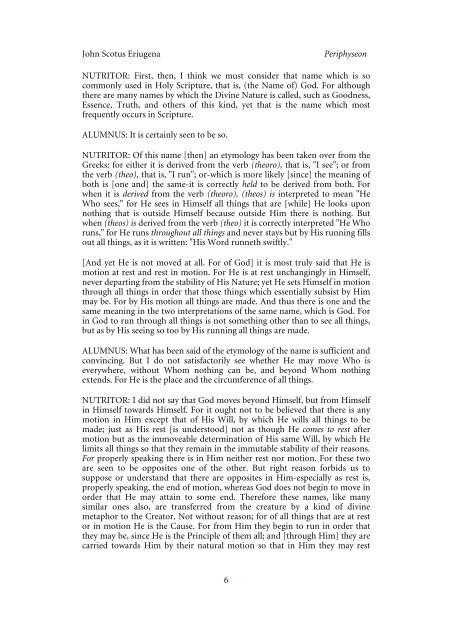
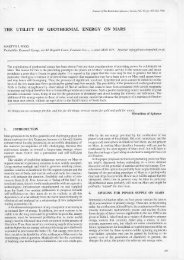
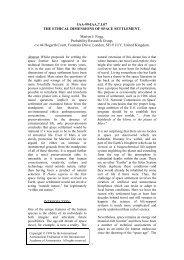
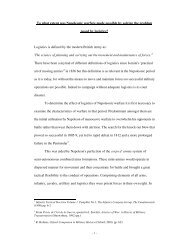
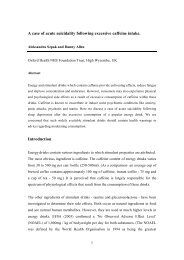
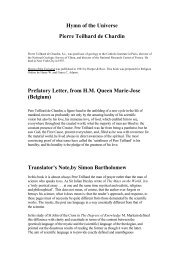

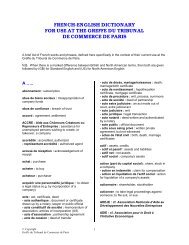
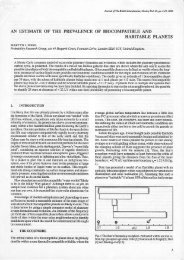
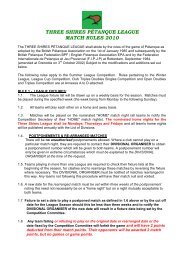
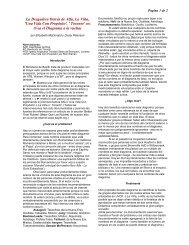
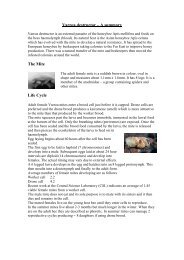
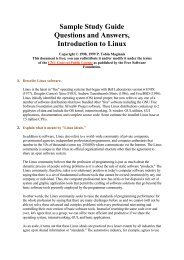
![Tibetan Herbal Medicine Core Curriculum [PDF]](https://img.yumpu.com/32594566/1/184x260/tibetan-herbal-medicine-core-curriculum-pdf.jpg?quality=85)
